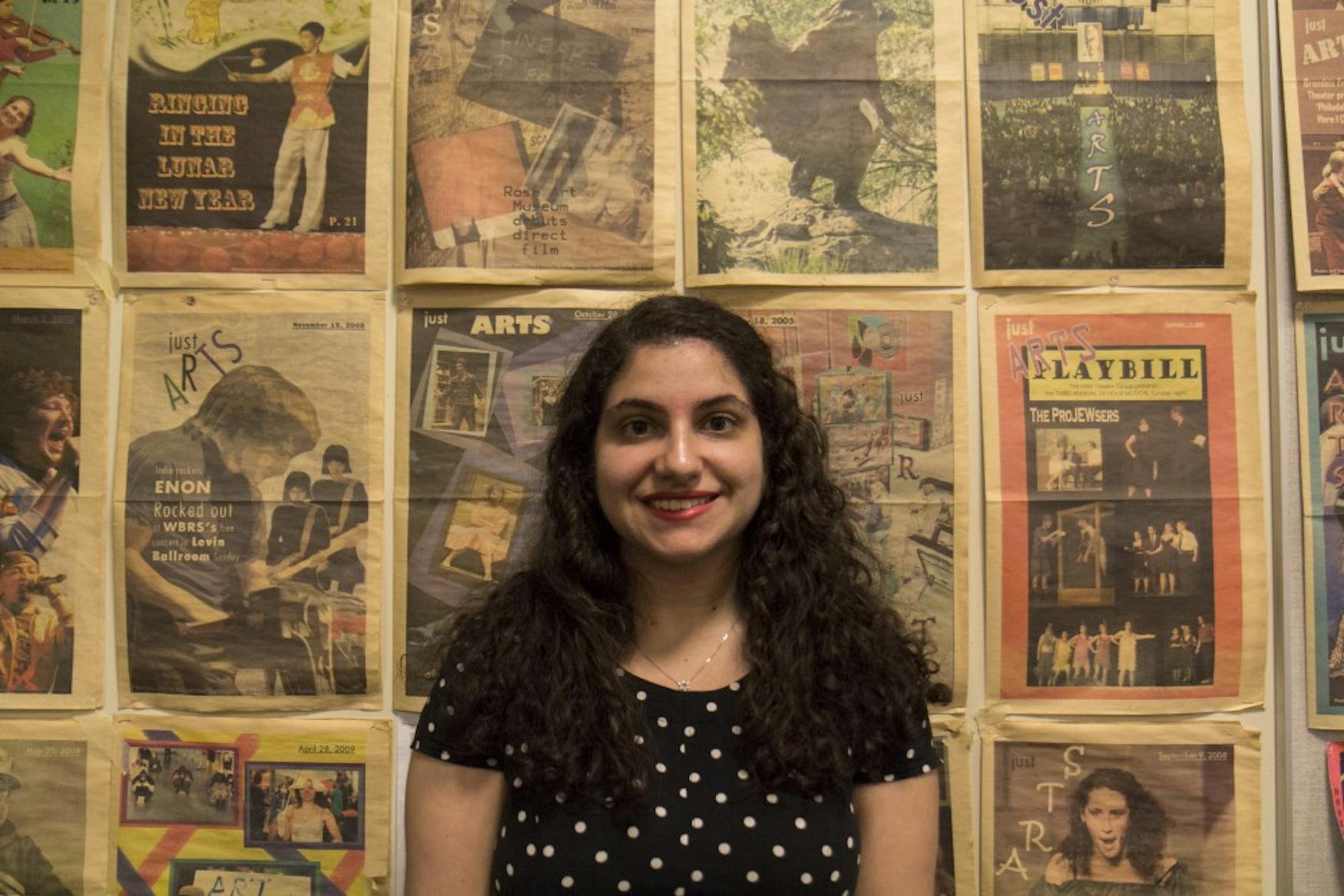Interview: Abi Pont '19
This week, justArts spoke with Abi Pont ’19 who directed HTP’s “Hamlet.”
justArts: This play was not the original version of “Hamlet” that everyone knows. Did you come up with any of the content completely on your own?
Abi Pont: So all of the dialogue and everything was straight out of “Hamlet”; it was mainly a cutting process. But the concept behind it was all me!
JA: Can you explain the concept again?
AP: Pretty much it was looking at if you have a more sympathetic Claudius, because he’s normally your antagonist, but if you have a more sympathetic Claudius, he becomes more complex — no longer the primary antagonist. So I just kind of turned it into Hamlet Sr., or the ghost, and one thing led to another, and it kind of led to an abusive relationship between Old Hamlet and Gertrude, to see how that would play out in the end. So you had Claudius killing his brother to get Gertrude out of an abusive relationship instead of to gain power, and then you had the ghost coming back from the dead to seek revenge against Gertrude for marrying another, instead of seeking revenge against Claudius for killing him.
JA: How did you come up with this idea to direct this unique version of “Hamlet”?
AP: Three years ago, in my high school senior Shakespeare class, Claudius yells out Gertrude’s name when she’s dying, which doesn’t make a lot of sense if he doesn’t care about her, and so then I was like, “What if he does care about her? What if he’s more sympathetic?” And then you spiral down the rabbit hole!
JA: What was your favorite part of the whole directing experience?
AP: I have to say working with my cast. I got so lucky; I got an amazing group of people! 99 percent of the work was [theirs]. The show is hard. “Hamlet” is hard in general, and then you throw in hard stuff on top of it — that can be very hard — but they just took it and they ran with it! And they’re such wonderful people in general; I enjoyed walking into every single rehearsal because I knew I was going to be around these talented, talented people.
JA: What was the most challenging part of directing?
AP: So I’m not normally a very creative person; I normally stage manage, which those in the theatre world know tends to be more so logistics and organizing, which is what I’m more so good at, so the confidence that you have to have with being like “You’ve got this!” and kind of going forward and putting your own thing out there, and kind of being like, “this is mine!”
JA: What do you hope that the audience took away from watching this particular version of the show?
AP: I mean part of it is, I guess first off, that you don’t have to read these texts as point-blank, and that you can very much play around with them, and you can make them more applicable to our modern day, because abusive relationships and those things, especially right now, are such a problem! Shakespeare’s plays are still considered classics because they can still be applied to this. So, to want to see what else you can do with Shakespeare and with these classics because there is so much you can do, but also just kind of showing that these relationships do happen.
—Lizzie Grossman



Please note All comments are eligible for publication in The Justice.